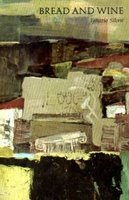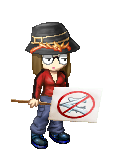Bread and Wine by Ignazio Silone

Translations are treacherous. They're like a foreign film where you watch a character gesture emphatically, red in the face and shrieking, while the subtitles coldly state, “Why?” Something has been lost in the shuffle, buried under the exotic. Reading Ignazio Silone's Bread and Wine was to hear its narration muffled and distanced by the English language.
The novel quickly leaves the priest behind to follow one of his students, Pietro Spina, as he steals his way back into
Despite its dogged campaign against conformity, and popular thought of all kind, nothing endears me to this book. Prevailing throughout is a thinly disguised contempt for the rural villagers, and their perceived ignorance, passivity and apathy. The women are mostly smothering, feminine creatures plagued with hysteria (the very last scene and character being an important and interesting exception). Like Ayn Rand's Fountain Head, it tackles themes of individual thought, socialism and captilism and its effect on the "simple, working man". However, unlike Rand's infamous work, Bread and Wine argues with a more succinct logic, and somewhat less irritatingly allegorical narrative that group-think breeds ignorance and a blind following. George Orwell's 1984 does this best of all, but that's another book review for another post.
Originally penned in Italian, Bread and Wine was published in multiple languages throughout Europe in the mid-1930s. Not surprisingly, the book was vilified and banned by Mussolini’s government, making it dangerous to possess, much less read. In this way, within this context, the ideas celebrated in the book are shocking and revolutionary. It takes no sides. It denounces capitalism, while betraying sympathy and respect for land-owners and bankers. It embraces communism, while sneering at its conformity and eventually dismissing its legitimacy.


